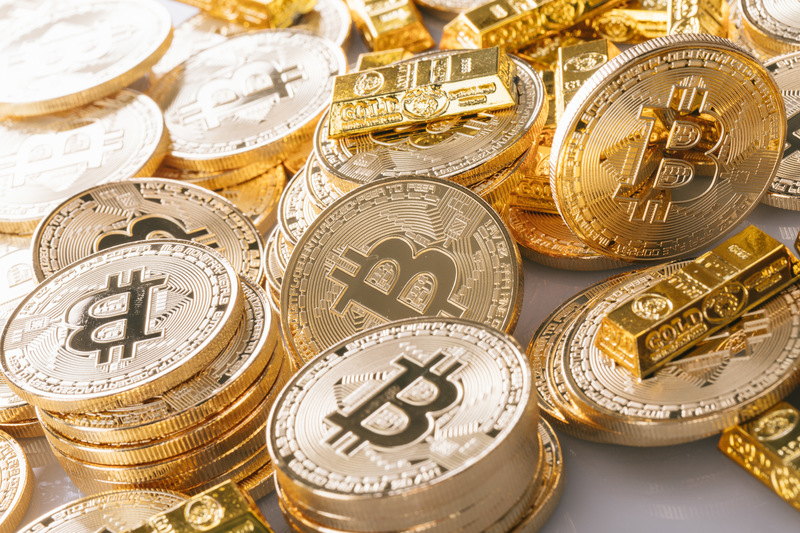Italy’s State-Owned Bank Trials Digital Bonds on Polygon Blockchain
The European Central Bank initiated the trial to explore how blockchains can enhance central bank settlement.

While Hong Kong is not as blatant against Bitcoin as China’s main regulation, there is still reluctance in adopting the cryptocurrency. However, it has been reported that Hong Kong’s Securities and Futures Commission (SFC) is currently exploring legal law and regulations regarding digital currency transactions in the region – with the potential review to see whether individuals can invest in exchange-traded funds (ETFs).
Currently, the regulations in place limit the transactions of cryptocurrency via funds or official trading platforms to professional investors who are able to invest a minimum of $8 million in Hong Kong dollars, which translates to over $1 million USD. This regulation was put in place in 2018, a time when Bitcoin was trading around $12,000 USD – a price six times less than the current value of Bitcoin. Owing to the massive rise in the price of Bitcoin, Hong Kong’s SFC is looking to see whether the current regulation and limits in place are still suitable or whether editing the law is required.
As it stands, there are no cryptocurrency exchange-traded funds available to investors in Hong Kong. However, it is not against regulations for investors in Hong Kong to buy crypto ETFs from other countries. Currently, the United States might just become a Bitcoin and cryptocurrency ETF hub as firms look to the US for funds to offer investors and those interested in the market an opportunity to dip their toes in cryptocurrencies. At least 12 applications for ETFs have been submitted to the Securities and Exchange Commission (SEC) at the time of writing.
As it stands, Bitcoin does not have a positive legal status in Hong Kong and banks, in general, are hesitant in dealing with companies and retailers in matters that concern cryptocurrency. This makes the environment less nationally regulated and leads individuals to engage at a more peer-to-peer level and personal trading has become a popular method of buying and selling cryptocurrency in Hong Kong. There are also more than 100 Bitcoin ATMs in the country, although their location tends to change frequently.
At the 2021 Hong Kong Financial Technology Week conference, Julia Leung Fung-yee, SFC’s deputy chief executive, noted that a review will be made in order “to see if it is still fit for purpose and whether modifications are required.” Fung-yee also stated that it appears that digital assets are growing closer to adoption into traditional financial methods, resulting in a need to re-evaluate current laws in place. She said:
“More, [and] different types of virtual asset investment products are available and conventional exchanges overseas now offer cryptocurrency ETFs.”
With Bitcoin’s massive rise in both popularity and price, investors and cryptocurrency enthusiasts have rallied to the token to add digital assets to their portfolio. Investors and retailers are looking to Bitcoin not only as an opportunity for short- and long-term investment but also as a possible future commodity that can be used as a tender.
In the last week of October, $288 million USD worth of cryptocurrency investment product was bought, with Bitcoin making up a significant portion at $269 million USD. Institutional demand for Bitcoin and cryptocurrency has been growing over the past year and has been gradually increasing over the past few months with the expectation of the US SEC approving the first Bitcoin ETF. Indeed, as the first Bitcoin EFT (ProShares Strategy ETF) was approved and launched last month, the fund hit $1 billion USD in assets under management (AUM) within the first two days, making it the fastest-growing fund to hit the $1 billion USD mark ever.
Nice look at just how ridic $BITO‘s first two days of volume were. Here it is vs the next most successful ETF launches of all time. It did double any of them, and is in good co w/ second day growth (see $QQQ, $GLD) via @tpsarofagis pic.twitter.com/WLzQt7yD3t
— Eric Balchunas (@EricBalchunas) October 21, 2021
The European Central Bank initiated the trial to explore how blockchains can enhance central bank settlement.
n recent months, inflation measures, including the Consumer Price Index and Personal Consumption Expenditures Index, have moderated.
BlockFi clients are to note that client communications will exclusively occur through official email channels.
CryptoQuant CEO says Bitcoin is still vulnerable to “speculative FUDs,” giving smart money a way to buy up cheap BTC.